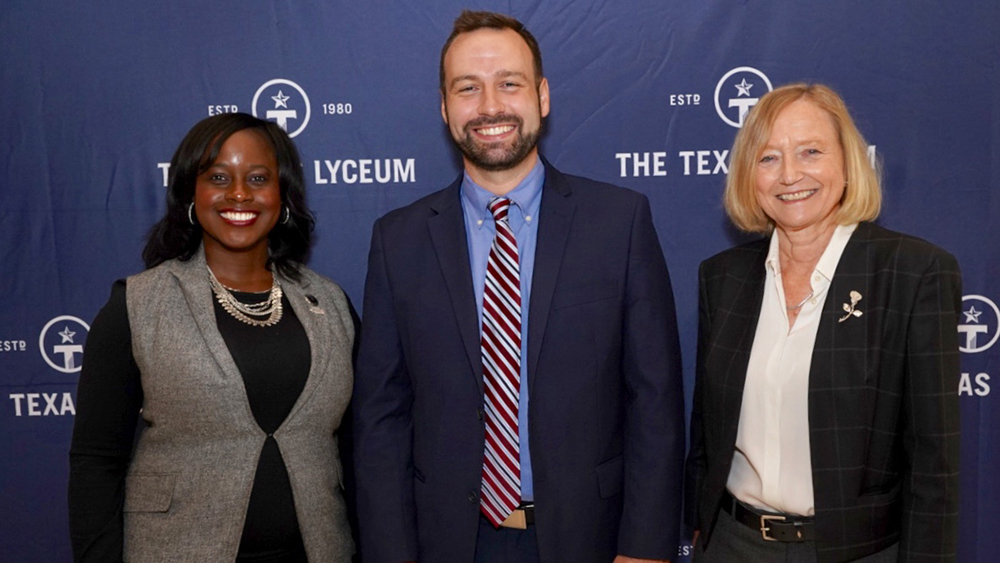
On Friday, September 13, the Texas Lyceum, a nonprofit, nonpartisan, statewide leadership organization focused on identifying the next generation of top Texas leaders, held its quarterly meeting at the Texas A&M Bush School of Government and Public Service. The meeting’s purpose was to explore the question “Are we taking our democracy for granted?”
Dean Mark Welsh of the Bush School welcomed the Texas Lyceum to the Campus. He discussed the meaning of democracy and how politics can create toxicity within the democratic process, and he charged the participants to come up with solutions to the barriers to a healthy democracy.
Dr. Ann Bowman participated in a morning panel discussion titled “The State of Our Union—Who Participates, Who Doesn’t, and Why?” The four-person panel explored and debated the results of the recent Texas Lyceum poll of Texas residents on issues of democracy and politics. Poll data shows that 82 percent percent of Texans agree that democracy is the best form of government, yet 42 percent are not satisfied with the way it is working. The panelists noted that younger people are more likely to think there are problems with the current system. A partisan divide exists with respect to internal threats to democracy. Democrats surveyed were more likely to consider money in politics as a threat, while Republicans were more concerned about the news media as a threat. Regardless of party affiliation, survey respondents agreed that open and fair elections are an important touchstone of our democratic system, but many worry that our elections fall short of this ideal.
During an afternoon session, Bush School of Government and Public Service graduate student James McKenzie spoke about his research on voter turnout in Texas. McKenzie’s work was supported by a summer research fellowship from the Texas Lyceum and supervised by Dr. Bowman. McKenzie described Texas’ consistently low voter turnout as among the lowest in the nation and researched whether or not policy changes could help increase it. He concluded that voting reforms exist that could make turnout more robust, thereby increasing the likelihood that the views of more Texans are captured in the election process. McKenzie’s policy recommendations were to 1) get more eligible voters registered, through Election Day registration and automatic voter registration, and 2) get more registered voters to turn out on Election Day, through expanded early voting options and countywide polling place programs.
Based on his research, McKenzie also authored the policy brief “Voter Turnout in Texas: Can It Be Higher?” for The Takeaway, a publication of the Mosbacher Institute for Trade, Economics, and Public Policy at the Bush School at Texas A&M University.

